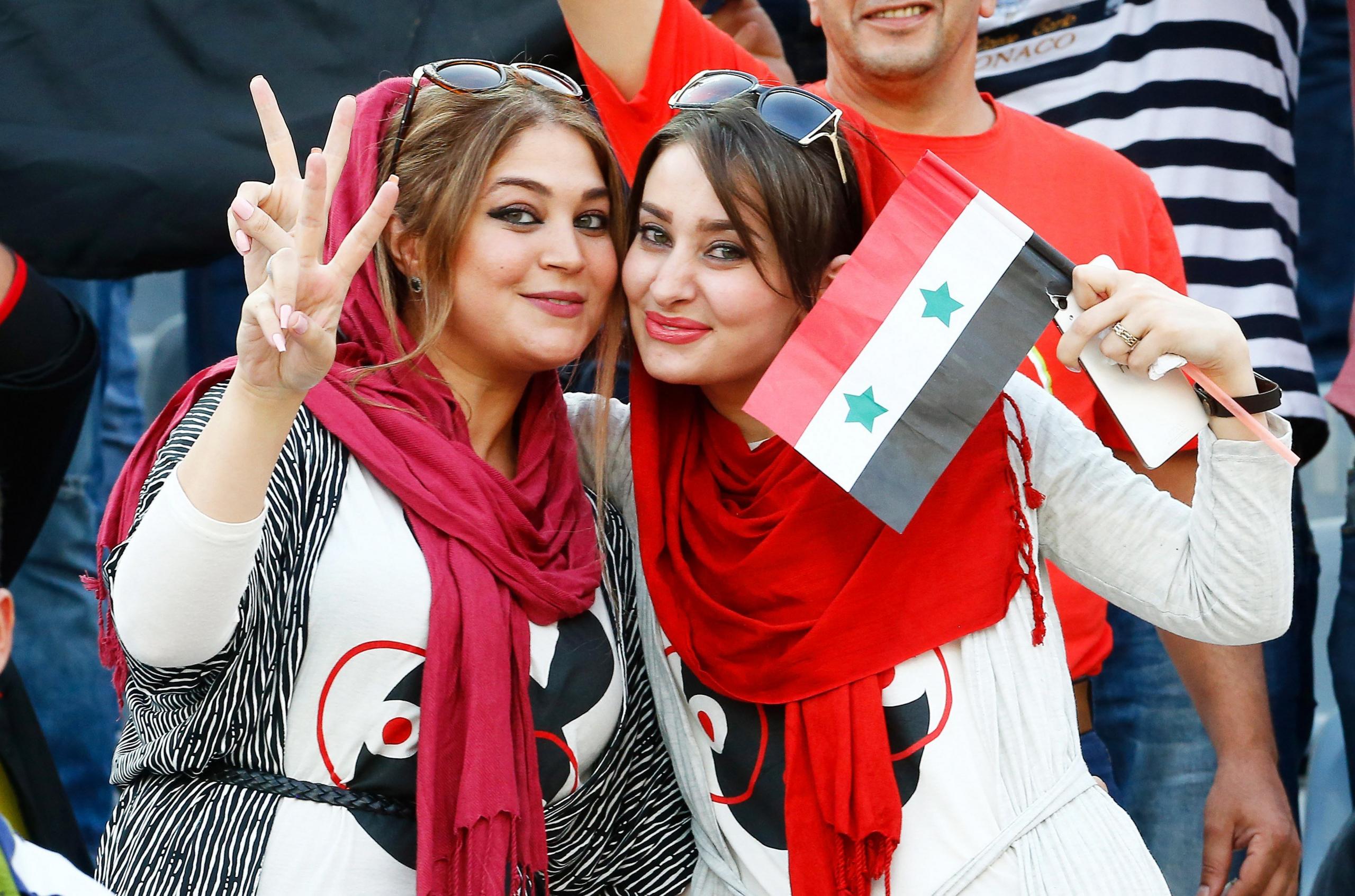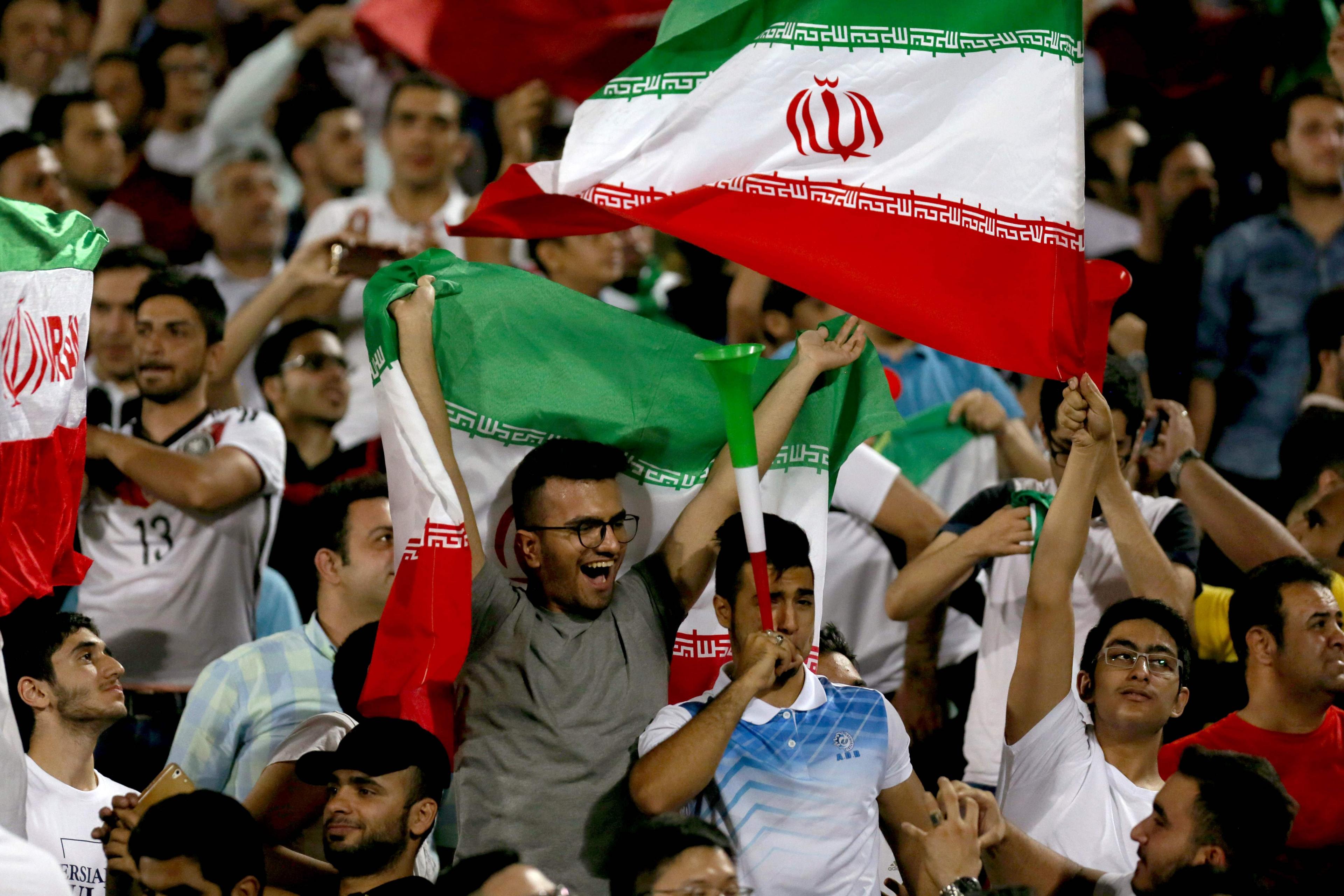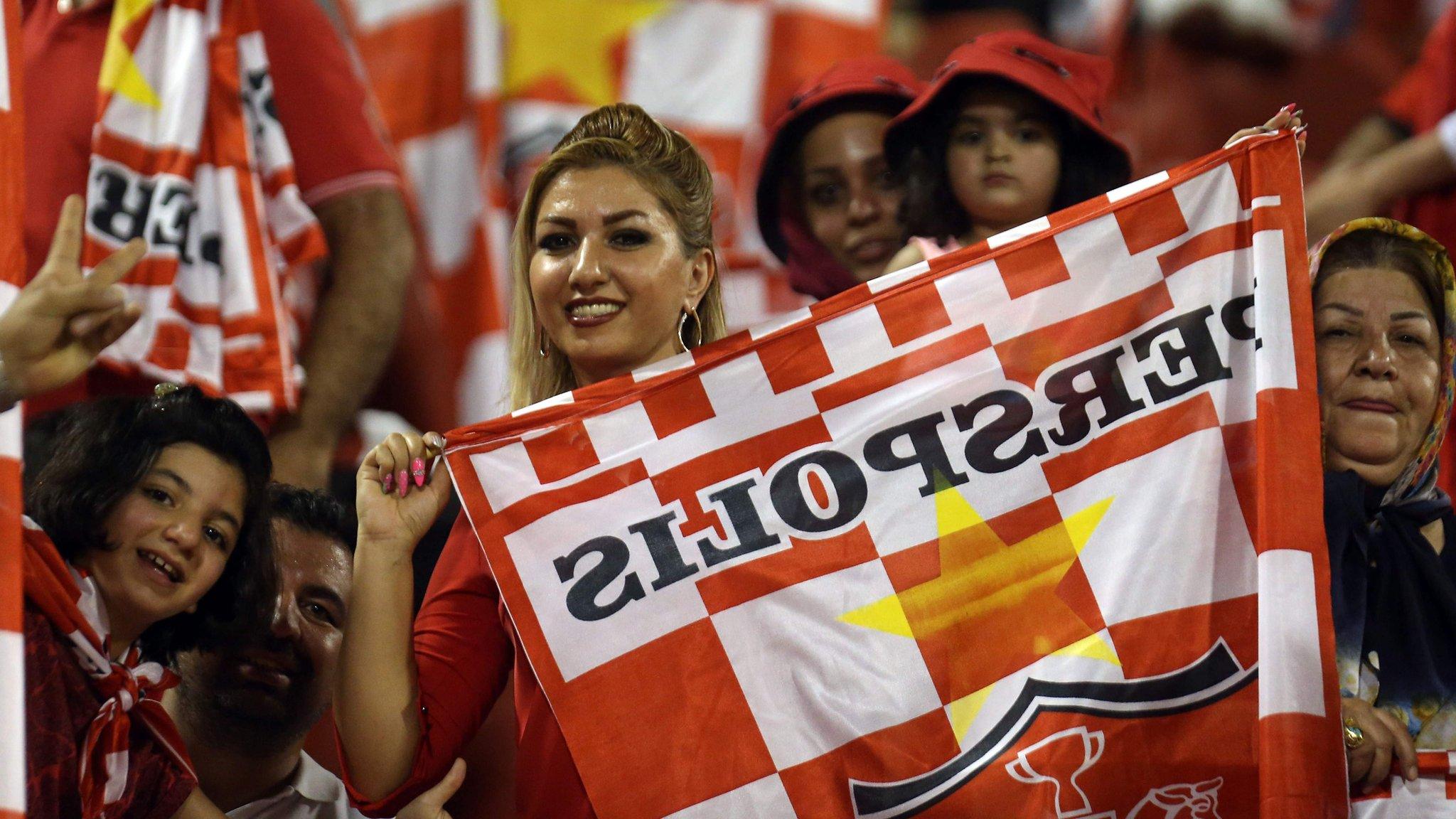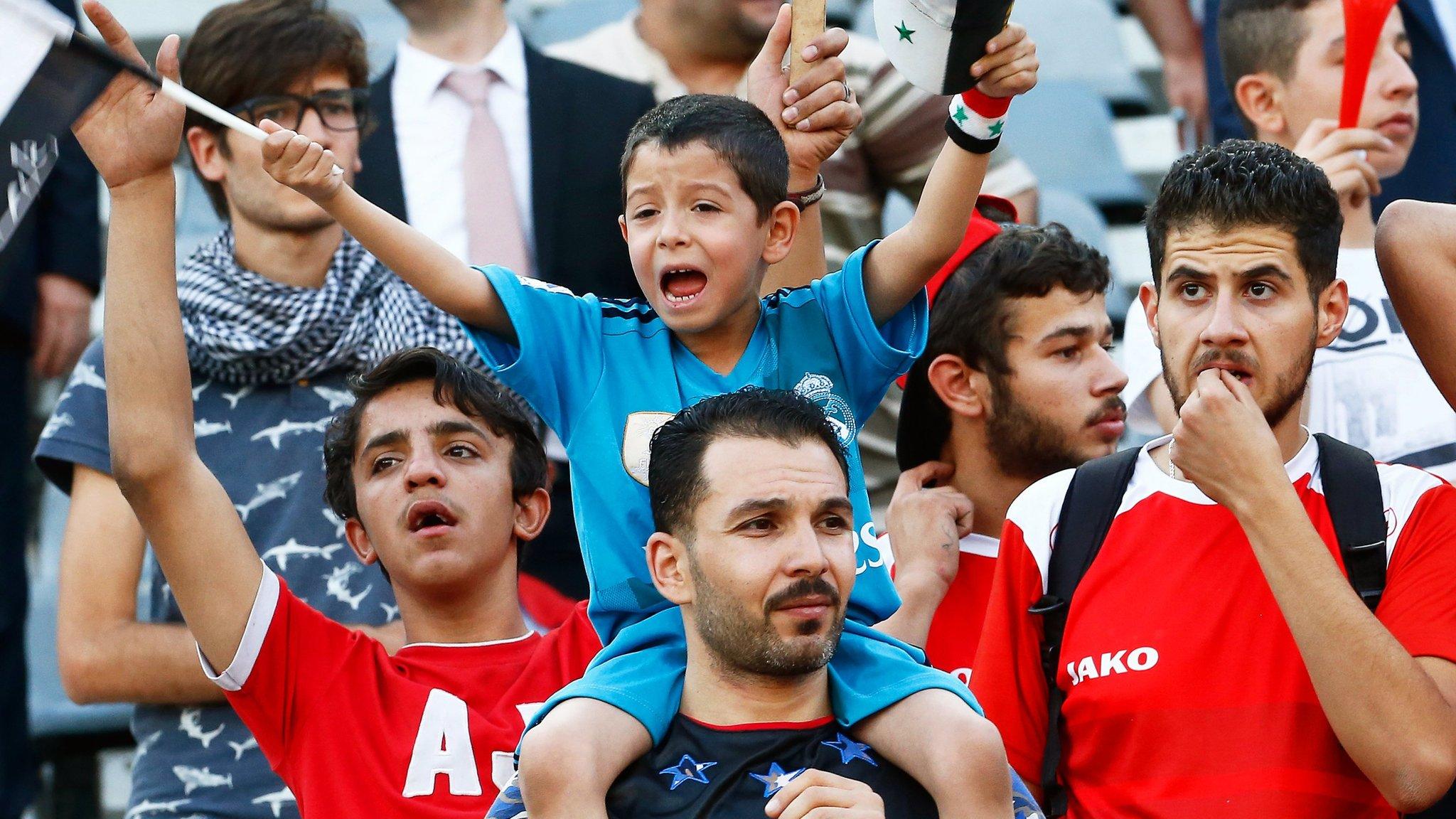World Cup: Iranian women refused entry to match despite holding tickets
- Published

Syrian women were allowed inside Tehran's Azadi Stadium to watch the match
Iranian women were refused entry to their national football team's World Cup qualifier against Syria, despite having pre-ordered tickets.
The women gathered outside, external Tehran's Azadi Stadium in protest after they were asked to leave, while Syrian women went through the gates without any issues after showing their passports.
Women are banned from attending men's football matches in Iran.
However, several women had been able to buy tickets online a week earlier.
It seemed the ban been lifted on Saturday, when an option for women's tickets appeared on the ticketing website.
But Iran's football federation later said the tickets were sold by mistake and promised to refund the women who had bought them.
Some of those with tickets still decided to go, external to the stadium on Tuesday, curious to see whether they could somehow get in.
"They did not let us in the stadium, took pictures and videos of us and threatened to arrest us. They then collected our tickets and took them away," tweeted, external a fan.
Another fan said, external police officers were "sad" that women could not watch the match, and had told her to "carry a Syrian flag" to go through.
Minutes before the kick-off, Iranian state TV's commentator said, external: "It's a pity that Iranian women are absent when we see women from Syria and other countries inside."

Nearly 200 Syrian fans travelled to Iran for the key World Cup qualifier match
Parvaneh Salahshuri, a female MP, told, external the Iranian Students' News Agency (ISNA) earlier today that the ministry of sports had given her and some other women MPs permission to attend the match.
But she said she had turned down the offer due to the "selective approach" taken by the authorities.
"As long as girls in this country are forced to wear men's clothes and face thousands of problems to enter stadiums and watch matches, I - as a representative of the people - do not like to go to a stadium with a special permit," she said.
However, Iranian sources published a photo, external of a fellow woman MP, Tayebeh Siavoshi, watching the match from the stands.
Responding to criticism from social media users, she tweeted, external: "Nobody invited me to attend the match. I made a request to go. Taking a passive approach and refusing to attend will not work."

Iranian authorities believe it is inappropriate for women to attend men's football matches
After the victory of Iran's Islamic revolution in 1979, women were gradually prevented from attending sports events.
Despite years of campaigning, Iran's ultra-religious establishment has so far refused to modify the rules.
In 2006, former President Mahmoud Ahmadinejad tried to get the consent of influential clerics to force a re-think on the ban. But he faced criticism from conservative politicians and subsequently dropped his demand.
By the UGC and Social News team, additional reporting by BBC Persian and BBC Monitoring
- Published4 September 2017

- Attribution
- Published5 September 2017
